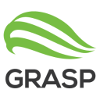Workshop Objectives
The workshop aims to provide a framework for revision of advancements and perspectives in aerosol, clouds and Earth’s surface observations, retrievals and modeling for climate and environmental studies.
It will focus on space- and ground-based remote sensing, aerosol circulation modeling, in situ observations and measurement synergy approaches. The workshop will include 15 minutes oral presentations and posters.
The sessions will cover the topics such as:
- Inversion algorithms – achievements and new ideas to derive aerosol, clouds and surface properties
- Achievements in aerosol, clouds and surface characterization
- Modeling and inverse modeling of aerosol and clouds climatic effects
- Measurements synergy approaches
- In-situ observations and field campaigns
- Future missions
Presentations on air quality, particularly using remote sensing are also welcome.
The workshop will take place from Monday to Thursday noon, it will then be followed by one and half days of GRASP ACE summer school focused on practical application of the GRASP inversion code for aerosol and surface properties retrievals from different remote sensing sensors.
The workshop will gather an international community of researchers and students. The total number of participants is limited to ~ 120 persons with majority by invitation and members of the GRASP ACE project (this project focuses on the synergy of different types of space observations, particularly lidar and polarimetric imager).
Plenary Presentations
James Hansen, Climate Science, Awareness and Solutions Program, Columbia University Earth Institute, USA (online)
Michael King, Emeritus, Laboratory for Atmospheric and Space Physics, University of Colorado, Boulder, USA
Teruyuki Nakajima, Emeritus the University of Tokyo, Japan (online)
Brent Holben, Emeritus, NASA Goddard Space Flight Center, USA
Didier Tanré, LOA, University of Lille, France
GRASP ACE Summer School Objectives
The GRASP ACE summer school will providing introduction and bases of the grasp code, as well as hands on GRASP code installation and inversions of different remote sensing instruments.
GRASP is a highly accurate aerosol retrieval algorithm that processes properties of aerosol- and land-surface-reflectance. To get familiar with GRASP documentation and the GRASP code installation please consult the GRASP open source code platform.
GRASP ACE is a project funded by European Commission in framework of HORIZON 2020.
ACE stands for Aerosol-Clouds-Ecosystems (ACE) NASA mission.
This project deals with reducing the uncertainties associated with the knowledge of aerosol microphysical vertical profiles worldwide through the use of new space-borne measurements.
Social Events
Dinner on Wednesday May 24th
Lille downtown guided city tour
Scientific Committee
Oleg Dubovik, Yevgeny Derimian, Benjamin Torres, Didier Tanré, Philippe Goloub, Céline Cornet, Jérôme Riedi, Marie Boichu, Qiaoyun Hu, Philippe Dubuisson, Laboratory of Atmospheric Optics (LOA), University of Lille, France
Mian Chin, NASA Goddard Space Flight Center, MD, USA
Adrien Deschamps, CNES, France
Bertrand Fougnie, EUMETSAT, Germany
Otto Hasekamp, SRON, Netherlands Institute for Space Research
Zhengqiang Li, Aerospace Information Research Institute, CAS, China
Pavel Litvinov, GRASP SAS, Lille, France
Alexander Marshak, NASA Goddard Space Flight Center, MD, USA
Gregory L. Schuster, NASA Langley Research Center, VA, USA
Feng Xu, School of Meteorology, University of Oklahoma, USA
Organising Committee
Y. Derimian, B. Torres, P. Dubuisson, Laboratory of Atmospheric Optics, University of Lille, France
D. Fuertes, P. Litvinov, Y. Karol, GRASP SAS, Lille, France
D. Perez, Applied Physics Department, University of Granada, Spain
Local Organising Committee
Y. Derimian, B. Torres, P. Dubuisson, M-L. Lievin, A. Priem, R. De Filippi, Laboratory of Atmospheric Optics, University of Lille, France
Y. Karol, A. Lopatin, M. Herrera, GRASP SAS, Lille, France
















